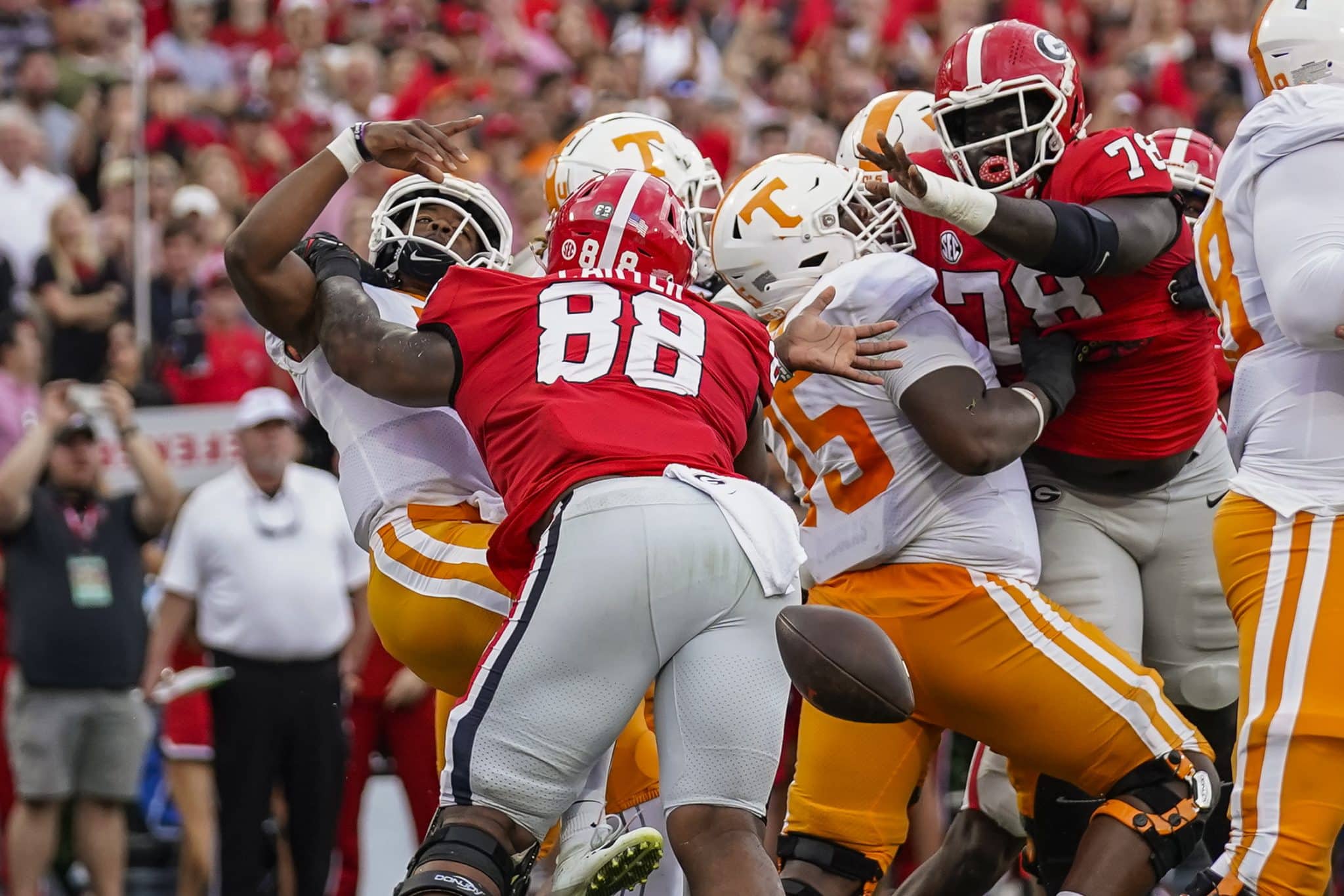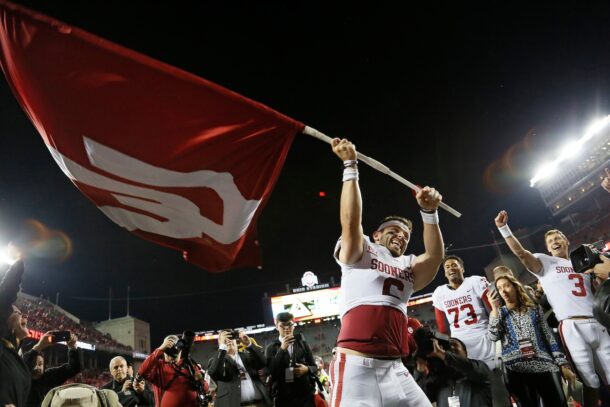
Georgia football: Is this a defensive team with a great offense? Or vice versa?
A season ago, there was no debate what was driving Georgia’s bus to the national championship.
With respect to running backs Zamir White and James Cook, whose senior seasons were just fine, and quarterback Stetson Bennett, whose Rudy-like ascension was fascinating to watch, everyone knew that team was going as far as its defense would take it. An all-time great unit accomplished an all-time great season and, by doing so, tied a no-name offense to its waist and said, “follow me.”
Things aren’t so clear in 2022, and last Saturday’s win over Tennessee is a good illustration of why.
The defense got the headlines, of course. It went up against the nation’s best offense and, behind the return of defensive tackle Jalen Carter, completely shut it down.
Kudos. Great job.
But before the rain slowed the game to a crawl in the second half, Georgia’s offense was every bit as responsible for the Dawgs’ domination. A dominant effort by the offensive line, big plays through the air and on the ground, a Tier 1 gameplan from offensive coordinator Todd Monken — all signaled why Georgia’s offense, as much as its defense, is among the very best in the country.
So, which side of the ball is more responsible for the team’s success? And which side is going to be the primary reason should Georgia, indeed, find a way to win back-to-back championships?
Let’s take a closer look.
Why the offense is more responsible
From Day 1 against Oregon this season, the offense was the more seasoned unit.
Even in early season games in which its defense was giving up few, if any, points, Georgia’s success putting points on the board did wonders to allow a relatively inexperienced defense to find its footing.
Do we remember the seven straight touchdown drives to open the season against the Ducks? Or the 368 yards and two touchdown passes that Bennett threw in the first three quarters? Do you remember just how unstoppable the Dawgs were for the first few weeks of the season?
And don’t worry, we’ll get to how well the defense played back then, too. But this is a discussion of which side of the biscuit gets buttered first and, at least for those first couple of weeks, it felt like it was the offense driving the defense.
We spend more time taking a microscope to how Georgia’s defense stacks up nationally, particularly when it is facing high-powered offenses like Tennessee and Mississippi State, that we forget that the offense is right there near the top with the Vols.
It has a top-10 passing offense and No. 3 total offense. It’s No. 11 in scoring and even running the ball, where it has no clear bell cow back, it is still in the top 30. It has elite weapons like Brock Bowers and Darnell Washington and (mostly) reliable receivers like Ladd McConkey.
More than the statistics, it has a combination of physicality at the line of scrimmage and versatility in the ways it can attack. Opposing defenses must account for a traditional running game between the tackles and off tackle runs and short passes to a superior athlete like Kenny McIntosh. The offense can line up in 12 personnel with two tight ends on the field, and Bowers or Washington can beat defensive backs through the air or put them in the dirt on a run.
And when all breaks down, Bennett has shown time and again he can extend plays, succeed on designed runs, or outrun linebackers to the corner of the end zone.
The Dawgs are a scoring machine, averaging over 40 per game and on pace to set a program record. Only once this season have they made it inside the red zone and failed to put points on the board. So, for all the talk about Bennett’s lack of touchdown passes, maybe we should also be looking at the team’s overall body of work inside the 20.
Behind one of the smartest offensive playcallers in college football, Georgia has made itself into one of the most difficult-to-defend units in the entire country.
Why the defense is more responsible
Opposing teams can’t win if they don’t score points, and Georgia has been stingy with them once again. After leading the country in points allowed last season, the Dawgs are No. 2 this season just a couple tenths of a point behind Illinois.
No, this defense hasn’t been as visibly dominating as last year’s edition. Fewer plays have ended behind the line of scrimmage and the team’s sack numbers, prior to last week against Tennessee, were abysmal.
But, still, the numbers tell a very successful story:
- 15 passing defense
- 5 rushing defense
- 5 total defense
- 2 scoring defense
- 4 third-down defense
- 3 red zone defense
I mean, you can say anything you want about the low sack total, that it’s more bend-don’t-break than it used to be — but these numbers are elite no matter how you slice it.
Even when the Dawgs weren’t consistently rushing opposing quarterbacks, their run defense has made opponents incredibly 1-dimensional. Opposing offenses gain just 86 yards per game and 3 yards per carry against the Georgia defensive front.
Forced into passing downs, offenses have had a tough time beating Georgia’s defensive backs. Kelee Ringo, who picked up his first interception of the season last Saturday, is a potential future first round draft pick. Christopher Smith is having his best season in college. Malaki Starks is probably the most talented of all of them.
And none of this is to mention the most important player on the field.
When Jalen Carter returned against Tennessee, the elite Georgia defense made its return. If healthy, that unit goes from a strength to a juggernaut.
So, which is it? Is this an offensive team with a great defense, or vice versa?
Can it be a cop out, and I say both? No? OK …
Georgia’s offense is the better unit this season, but it’s the defense that’s going to make the difference. I think we could all feel it a little bit during those few weeks where Georgia wasn’t quite as dominant. Something was just slightly off, and I think a lot of that lies within Carter’s absence to injury.
With Carter back, that unit takes a major step forward. And it will need to, considering who Georgia might have to beat down the stretch.
The Dawgs can score with anyone, but what will separate them from other contenders is their ability to slow elite offenses. Georgia might have to face Ohio State and its elite wide receivers. It will have a game against LSU, Ole Miss, or Alabama in the SEC Championship game (barring monumental upsets in the next two weeks). It may even, heaven forbid, have dreaded rematches against either Oregon or Tennessee in the College Football Playoff.
Call me crazy, but I don’t see any of those teams having defenses capable of shutting down Georgia’s offense. But they do have offenses that can outscore it if not stymied enough.
The Dawgs appear to have that defensive mojo back. If so, they’ll be a tough out the rest of the way.







